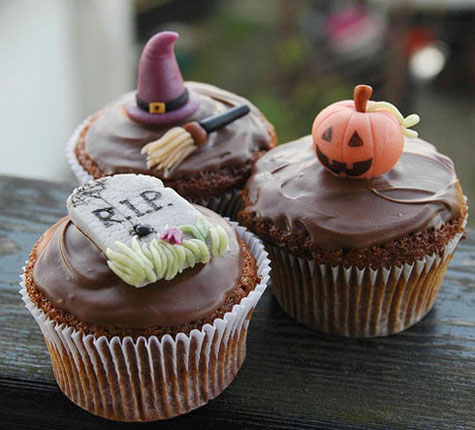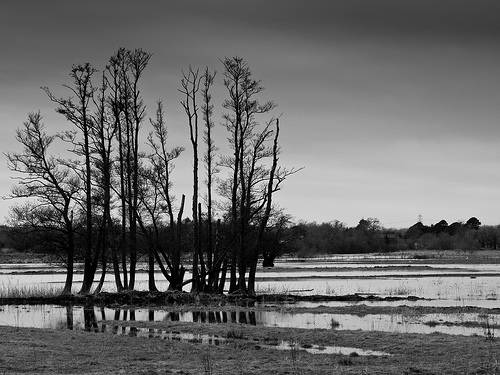nothing to be afraid of . . . . .
/When I was eighteen I had a premonition.
She was standing across the bar from me. In a student union. Not a student. Not a teenager. Something about her posture was crushed. Tiny fractures in her vertebrae. But I didn't recognise grief when I was eighteen. Because I was lucky and stupid.
We were loud back then. Or we were quiet. Boasting with ideas. Or clinging to the wall, hoping to pass unnoticed.
Our thoughts so predictable that you could probably have written them out on a blackboard and counted out the nodding dogs. Insecurity and hubris and hormones. But hers were unreadable.
She was slight with a cloud of dark hair. She drank only water. Her eyes were wide but she seemed to be looking somewhere other than where she happened to be at the time. Sinking or rising to a parallel, near the ceiling or just above the floorboards. Disconnected, in a far off place. She looked mildly upon us. Occasionally her expression was kind. At other times, I suspected, less so.
I almost spoke to her once. Out of curiosity. But, before I approached, I asked someone why she came here, to our bar.
"Her baby died," was the reply. Apparently her baby had died at the hospital around the corner. In the inner city, it's hard to disentangle places for death and places for entertainment. Perhaps that bar was as close as she could bear to get.
I felt relief wash over me. That I hadn't spoken to her. Because now, now I was afraid of her.
How sad. Eighteen year old me, you were so stupid. You were afraid of a mother and a little baby. You were afraid of love, afraid of death. How silly. You can't outrun those two, even with eighteen year old legs. If you are a human, those two will chase you down, no matter how fast you run.
I don't even know if this story was true. I never did speak to that lady in the end. A dead baby is one of those convenient explanations rolled out for anyone acting a little oddly. The handy urban myth. Her baby died. His baby died. An instant and, supposedly, plausible explanation for all sort of scary and strange behaviour.
Because we're frightening. All of us here. Their worst nightmare.
Altogether now . . . .
RRRRRRRRRRRRRRRRAAAAAAAAGGGGGGGGGGGGHHHHHHHHHHH!!!!!!!!!!!!!!!!
****
I emailed a friend this autumn. About how the Halloween themed October page on my cupcake calendar was really pissing me off. It was a cupcake with a gravestone on the top. Hmmmm. Death. Is it cute and yummy? Or scary and associated with ghouls and monsters? Is death frightening? Or is it something appetising and edible? Trivial or taboo? Awful or nothing to be afraid of?
 Photograph by Maria Olejniczak
Photograph by Maria Olejniczak
***
Just after Jessica, my surviving daughter, came home from hospital, a film came out on release in British cinemas and was trailed extensively on television. I came to hate this film, 'The Unborn.' Can you guess where this is heading? Something a bit spooky and unsettling appears to be happening? Check. Is there a hysterical woman? Check. You can bet they'll be a dead baby at the bottom of this one. And, let's face it, the title is a bit of a giveaway.
A young woman discovers she was (is) a twin. Her brother died in utero. And now she is haunted by the dead twin? Possibly? I'm not entirely sure from the rather confused plot synopsis I just looked up via Google and, for obvious reasons, I wasn't queuing up to see this film.
Because there is nothing like the repetitive screening of a trailer for a horror film to sneak up on you and remind you of what your life has turned into.
****
This strange dichotomy seems to put us in a bit of a bind. We are scary but we must also remain meek. Something to scream at that must also creep about, quiet as a mouse.
We are terrifying. What has happened to us is so awful that it is wheeled out as an explanation for a multitude of sins. It is a frequently used plot device, the dead baby. It has been written about at Glow before, by far better writers than me, please see this wonderful post of Tash's here. Arson? Drinking too much? Suicide? Even, as in one extremely popular British soap opera, stealing someone else's baby? The motive? Yup. That's right. A dead baby.
As someone with my very own, extremely personal, dead baby, I do sometimes wonder what people think of me. Do they think I'm eyeing up their babies, ready to make my snatch? That I'm drinking from secret bottles of gin secreted about my house? Crazily cackling over my box of matches? I know it's been a while since my daughter died but there is still time for the crazies isn't there? But, in reality, all I do is love her and miss her. And sigh quietly.
A fictitious dead baby stands in for unspeakable horror, an explanation for the most erratic and strange behaviour. One that might even afford the perpetrator some sympathy (although don't bet on that, poor baby-snatching-lady from the soap didn't get much here in the media) a real, honest-to-goodness, true life dead baby seems to be a different proposition. When they stop being a plot device and become a real child. My daughter, Georgina, who I loved and cared about. Not a handy explanation or short hand for why I'm so screwed up. It is, apparently, less easy to discuss her than it is a made up baby on a soap opera. I've had entire conversations about the dead-baby-mama-turned-baby-snatcher plot with people who have never once mentioned my own daughter. Although I know that they know that I have a personal interest in this storyline.
We don't talk about that. If this happens to you in real life you'd better not become unhinged. You can't even get away with being slightly angry in some quarters. Don't yell, don't even whisper. Don't tell anyone your feelings or you will be giving too much away. Bad enough that your baby died. Don't talk about it for heaven's sake. Don't have any feelings about it. Don't, whatever you do, write on the internet about it. Just keep quiet.
Scary. Scary and silent. Silent about the very thing that makes us scary. An odd corner to be painted into. One that I'm uncomfortable in.
Do you think that 'joe public' finds us scary? Do you ever feel scary?
What are your feelings about the 'dead baby' plot device, that favourite of literature and film?
Why is talk about strong emotions, death, love or anything that really matters, so very unfashionable? Or is that just in the circles in which I move? For the purposes of full disclosure, I'm 32, British and move in circles composed of mothers with young children and/or people who like numbers and databases. Is it different where you are?





